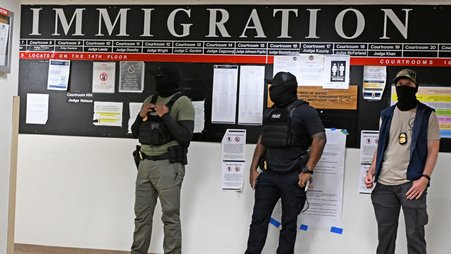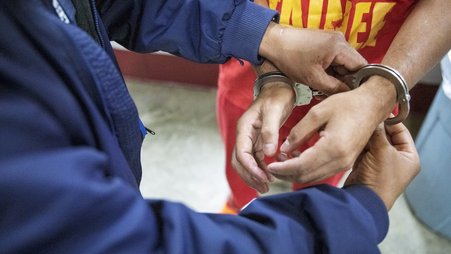UPDATE: The transcript from day one of the Bradley Manning trial has been posted and can be found here.
In the last month, the Freedom of the Press Foundation has been engaged in a whirlwind fundraising campaign to raise money to have professional stenographers provide daily transcripts of the court martial of accused WikiLeaks whistleblower Bradley Manning. His court martial will likely be one of the most important trials regarding whistleblowers’ rights and government secrecy in decades, yet the government has refused to provide the press and public with transcripts of the proceedings, a vital tool that ensures accurate and substantive reporting on the trial.
Earlier today, we scored victory for transparency: the military judge, Col. Denise Lind, and the lead prosecutor in the case against Manning indicated that neither was likely to object to our publicly-funded court reporters using stenography equipment in the media operations center.
The issue came up early on the first day of the trial, when Judge Lind was questioning whether press and public access to the trial had been hampered. She specifically brought up the issue of a stenographer sitting in the media room. The prosecution did not object to a stenographer providing transcripts of the trial provided there was no actual audio or video recording made of the proceedings.
Essentially, this means that our stenographers can do their jobs without running afoul of a misguided and overly aggressive interpretation of the media restrictions on the trial.
Unfortunately, the military denied our request for press passes last week, along with 270 out of the 350 media organizations that applied. In response, yesterday twenty major news organizations—including Los Angeles Times, The Guardian, Newsweek, Bloomberg, and Fox News—sent a letter to the military court urging them to issue two permanent press passes to the stenographers so they can act as pool reporters for the organizations who were denied access.
The court has yet to respond to the request, but thanks to Nathan Fuller and the Bradley Manning Support Network, we were able to get one of our stenographers into the media center to create a transcript of the first day of the court martial. Fuller graciously sacrificed his own press pass so that the public would have an accurate and timely transcript from the first day of the court martial. We owe a great debt to Nathan and the Support Network, and applaud their commitment to transparency.
The first transcript will be posted here at 9 am eastern tomorrow.
Just hours ago, we received more good news. Forbes and The Verge, two of the three organizations that originally applied for an extra pass for our stenographers, have generously offered us their press passes for the rest of the week. This means we can get two stenographers into the media room tomorrow, and we get transcripts out to the press and public even quicker.
Barring unusual circumstances, the transcripts from morning sessions will be finalized and ready for publication on the Internet by the early evening. The afternoon transcriptions will be ready for publication by 9 AM the following day. The entire archive can be found here.
We are hopeful by the end of the week the military will issue us two permanent press passes.
To date, we’ve raised nearly $60,000 to provide daily transcripts of the court martial. That’s a good start, but it’s not enough. We have a team of five professional stenographers, all based near Ft. Meade. They will go to Ft. Meade in pairs, each doing a half-day of transcription of the court martial, and will alternate which days they cover through the trial. This type of speed and professionalism is expensive; we expect the total costs to be between $60,000 and $120,000. Please help us ensure there is media coverage for every single day of this pivotal court martial by donating today.
These transcripts will serve as a resource to journalists, academics, historians, the public and transparency advocates everywhere. Even as the government has fought to create bureaucratic barriers to accessing Manning’s trial, these transcripts will give the public a virtual seat in the courtroom.




